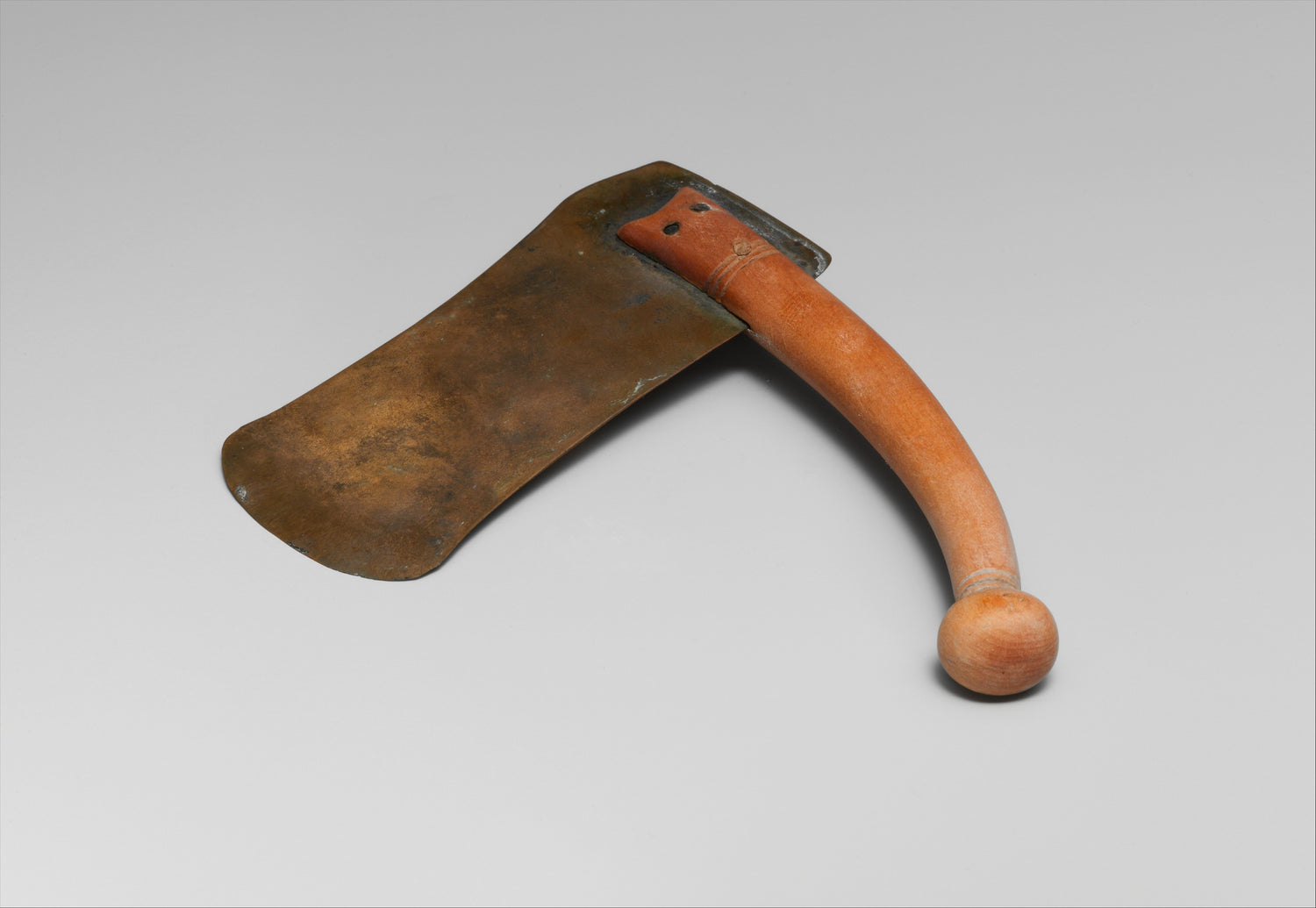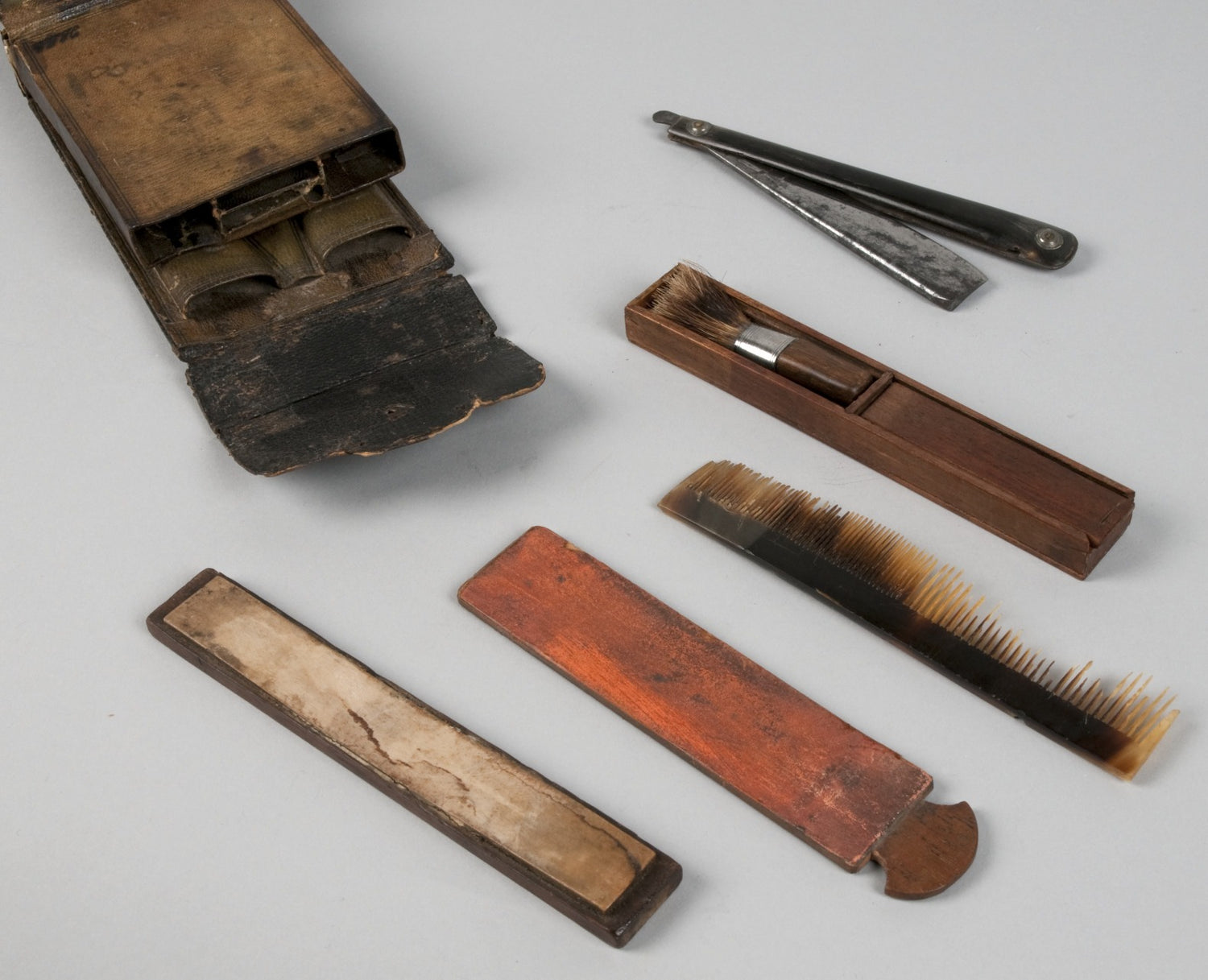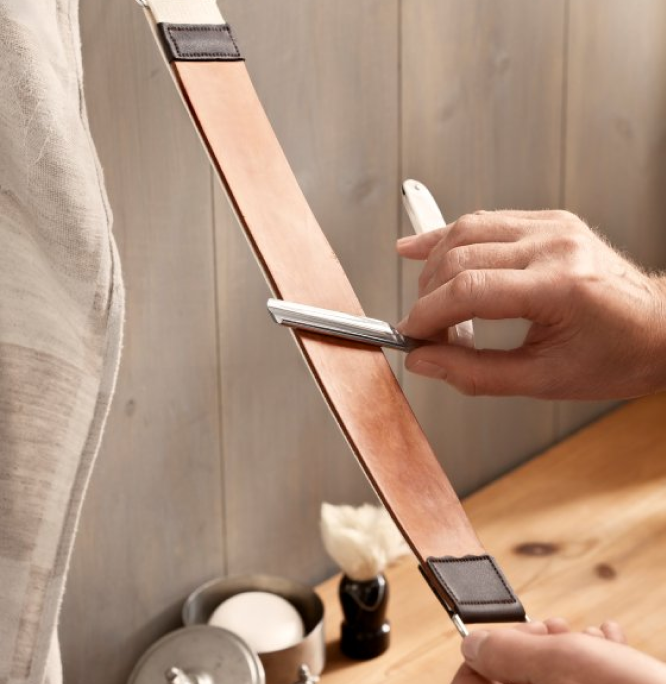
Natural objects like shells were used in the Prehistoric Era
Throughout history, man has strived to groom and keep check of his facial hair. This goes back to some of the earliest records of human activity in the prehistoric era. A time where concepts we take for granted today like creating fire and using tools were just being realised.
Ample evidence has been found to show the use of rudimentary razors in prehistoric times. These were not finely fashioned or melded into different shapes. Instead, the cutting power was typically drawn from natural serrated or sharp edges on the material such as shark’s teeth, clam shells, and flint.
Flint was one of the best items as it could be sharpened but it was also useful for other things like making sparks for fire. Drawings of the earliest razors have been found in many prehistoric caves. There has also been findings in Egyptian tombs of Pharaohs, queens, and their family like the amazingly preserved example of Hatnefer’s Razor which is on display in the Cairo Museum.
We then turned to basic metals like copper during the Bronze Age
As the human race developed, we started to have basic metalworking skills and could fashion materials like copper, bronze, and gold. During the bronze age, new types of razors were created as a result.
The wealthiest and most influential people would have access to these metals and evidence has shown that many had personal hygiene tools including razors.
There have been bronze age burials unearthed where these tools have been found. Additionally, records from Roman and Greek history showed that they were more common in these empires. This is because more “enlightened” cultures saw a tangled mass of facial hair as dirty and barbaric. Some military generals also urged their troops to shave as a tactical advantage so enemies couldn’t grab onto their beards during mele skirmishes!
-

Bronse
-

Copper
-

Gold

Steel-grade razors were first introduced in England
It was not really until the 18th century that the style of razors took a dramatic turn and moulded more into what we are familiar with today.
Records show that the first straight razor was designed and manufactured in Sheffield, England. At this point, industry was thriving in England and the country was at the forefront of many technological and industrial developments. Indeed, Sheffield was known for being a major player in the cutlery industry which relied on metalworking skills and techniques.
It was Benjamin Huntsman who produced the first modern razor from hard steel using a crucible process where various materials like steel, sand, and ashes were melted together in a large crucible pot. The English manufacturers rejected his idea and the blade only became popular in the UK after Huntsman had successfully sold it on the French market.
From there, steel razors became common in barber shops although daily shaving still wasn’t popular and it wasn’t really until the 20th century that it became normal practice.

Manufacturing was refined to create modern items like safety razors
Today, the straight razor remains in use and indeed traditional cut throat razors are having an amazing resurgence. You can get some incredible cut throat razors from renowned manufacturers like Dovo here at the Cut Throat Club.
Improvements in manufacturing processes led the way for other razor types in the 20th century too, however. For example, we have the safety razor. This is essentially a razor blade with a protective guard on that helps reduce the chance of cuts and nicks.
Additionally, we have removable-blade razors where you can replace the blade once it becomes dull. In ages past, the tool typically had a fixed design and the entire item would have to be replace. This removable style led to the creation of cheap disposable razors too and cartridge razors.
The technology has come a long way and today you can pick from any type of razor depending on your preference. Whether you want to develop your skill with a cut throat razor, or prefer the quick option with an electric foil shaver!
As you can see, the basic principle has remained the same – we use something with a sharp edge to shave hair from our face and head. However, the items used have changed incredibly. From rudimentary natural objects like shark’s teeth and clam shells in the prehistoric age, through to the hardened steel safety razors we use today.



Conclusion - Phew!
That is everything. All in one place. If you are interested in getting started wet shaving then check out the Cut Throat Club's product range.
We would love to get your input on any differences of opinion you have or other lessons you have learned that new beginners would value - Please leave a comment below.